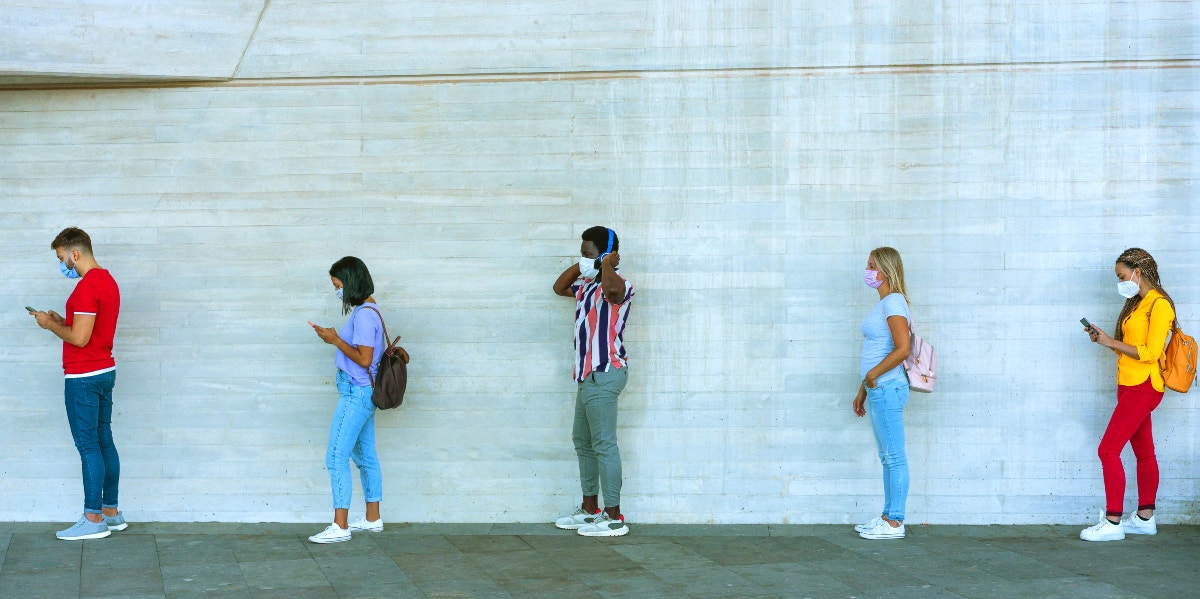Is The Health Care System Racist? 5 Ways Black People Are Affected By Medical Racism
Racism is a public health crisis.
 DisobeyArt / shutterstock.com
DisobeyArt / shutterstock.com Early last month, in the peak of the coronavirus crisis, statistics showed that racial minorities in America were dying from COVID-19 at significantly higher rates than white people.
American Public Media (APM) Research Lab compiled its data from the 39 states and the District of Columbia that are reporting the race and ethnicity of residents who have died of COVID-19.
They found that African-Americans make up 27 percent of coronavirus deaths despite only accounting for 13 percent of the population.
Now, as supporters of the Black Lives Matter movement call for a defunding of the police force in response to police brutality, many have called for money to be reinvested in public health care.
But what exactly would this look like given the current state of the American healthcare system?
The coronavirus death figures magnify a grim reality that is all too familiar for Black communities. Even within the healthcare system, people of color are not immune to the effects of systemic racism.
Does pumping money into healthcare just mean redistributing police funding into another, equally racist system?
Relying on defunding the police as a solution to systemic racism is like a game of Jenga: Blocks are moved from one area of the tower and placed in another, but the cracks still remain and the system is just as likely to collapse.
Without building from the ground up, no improvements can be made to the stability of this structure.
Racism in the health care system exists just as prolifically as it does in policing.
An increase in healthcare spending is not likely to dismantle systemic racism until some key issues are addressed within this sector:
1. Socioeconomic disparities
In a medical system based on profits and the ability to pay, many minority communities are unable to access the healthcare they need. Black and Hispanic people make up a majority of the population who cannot access health insurance.
Throughout the coronavirus pandemic, it is mainly white people who have had the luxury of being able to work from home and protect themselves from the virus, while Black and brown people risk their lives on the frontline or face unemployment.
Black people are underprivileged when it comes to income, housing, and food supplies, meaning they are more likely to need access to healthcare but less likely to receive it.
2. Racial biases
Even if they do have access to healthcare, biases and prejudices deny Black people the support and medication they need.
The “strong black woman” trope means white women are often given preferential treatment in healthcare.
Black women are 71 percent percent more likely to die from cervical cancer than white women. Black people who give birth are 243 percent more likely to die during pregnancy or childbirth. Black infants are twice as likely to die before they turn 1 year old compared to white children.
Active discrimination with our healthcare system is responsible for more loss of lives than corrupt policing.
3. Research excludes people of color
Clinical trials and medical research are often carried out only on white subjects.
Between 2015 and 2018, less than 5 percent of participants in trials of 24 now-approved cancer drugs were Black. This is particularly troubling given that Black people have the highest death rate of any racial group in America.
The bulk of studies into respiratory diseases in America focus on European-American subjects. Neglected by research, African American children have died from asthma at 10 times the rate of non-Hispanic white children.
This lack of representation means racial minorities are often misdiagnosed, or not diagnosed at all.
4. Racism among practitioners
Stats and figures hide the reality that racism is a problem created and perpetuated by white people. Without racial diversity within the healthcare system, the prejudices white practitioners have towards Black patients continue to negatively impact lives.
According to 2018 research, just 5 percent of physicians in the U.S. are Black, compared to white people who make up 56.2 percent of all medical physicians.
One study found that two-thirds of doctors harbor a racial bias and are inclined to dominate conversations when interacting with Black patients. This means the needs of Black people are not being heard by their doctors, so they cannot get the attention they need.
5. Lack of mental health support
Black communities are not afforded the same respect in mental health services as white people. Stereotypes that view Black youths as disruptive or dangerous mean they are sent to jail cells rather than given mental health support.
Black people are with mental illness are 5 times more likely to be incarcerated than whites.
A history of forced experimentation and wrongful detention in mental health facilities continues to impact Black communities who feel unwelcome by the healthcare system.
Suicide rates among young Black women have increased over the past 20 years, while rates of suicide among white women have gone down.
The toxic effects of racism do not end, and Black mental health suffers as a result.
Alice Kelly is a writer with a passion for lifestyle, entertainment, and trending topics.

